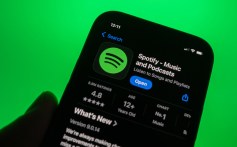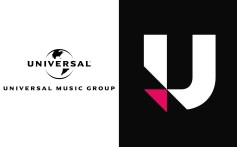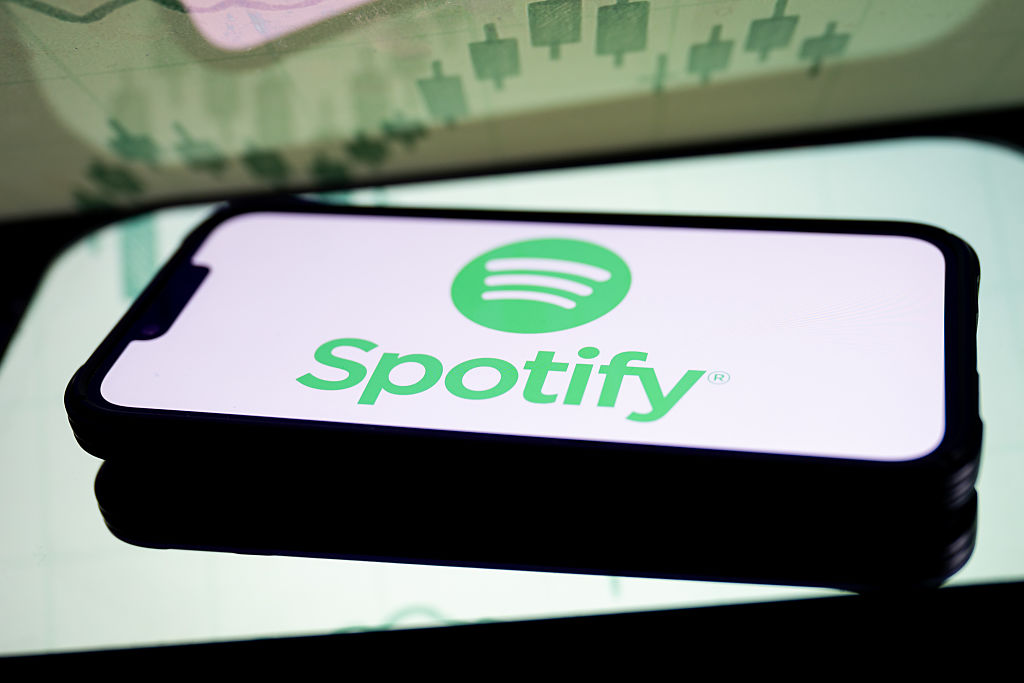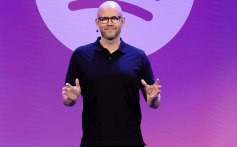spotify
Page: 2
Trending on Billboard Spotify is rolling out music videos to its users in the U.S. and Canada, the company confirmed with Billboard. The feature was previously beta-tested in nearly 100 overseas markets last year. A Spotify representative says music videos will be integrated into the service in the coming weeks for U.S. and Canadian customers, […]
Trending on Billboard
Since subscribing to Spotify in 2023, Genevieve Capolongo says she’s mostly listened to “lesser-known artists” like Próxima Parada, Julia Cooper and Brusco. But she says the streamer’s recommendation tools keep serving her “mainstream, major-label tracks” by Drake, Zach Bryan and Justin Bieber.
According to her lawyers, that’s because Spotify was paid to do so.
Related
In a lawsuit filed last week, Capolongo claims the streamer’s Discovery Mode and editorial playlists amount to a “modern form of payola,” allowing labels to secretly boost their tracks with a “deceptive pay-for-play” program. She says she wouldn’t have subscribed if she knew that Spotify’s recommendations had been sold “to the highest bidder.”
The case is sometimes light on specifics, like citing unnamed “industry insiders” about alleged illicit payments or “disproportionate” rates of major-label music. Spotify, for its part, called the lawsuit “nonsense” and said it was “riddled with misunderstandings and inaccuracies.”
But it targets a program that has raised eyebrows for years — and comes at a time when Spotify has faced multiple accusations about manipulation on the platform. For more, go read our full story here.
You’re reading The Legal Beat, a weekly newsletter about music law from Billboard Pro, offering you a one-stop cheat sheet of big new cases, important rulings and all the fun stuff in between. To get the newsletter in your inbox every Tuesday, go subscribe here.
Other top stories this week…
DRAKE’S APPEAL – As Drake asks an appeals court to revive his lawsuit over Kendrick Lamar’s “Not Like Us,” I asked legal experts what his lawyers might argue — and whether it’ll work.
TAYLOR V. TRUMP? – Taylor Swift fans want her to sue the Trump administration after it used “The Fate of Ophelia” in a TikTok video. She probably could, but almost certainly won’t.
DISJOINT VENTURE – 10K Projects, the Warner-owned label founded by Elliot Grainge, is facing a lawsuit claiming it owes millions to Taz Taylor’s Internet Money Records under a joint venture.
FAST & FREE SONGS – How did New York City Mayor-elect Zohran Mamdani get clearance to use Bob Dylan’s iconic anthem “The Times They Are A-Changin’” in a campaign ad? It turns out he didn’t.
MJ LITIGATION – Michael Jackson’s estate is locked in a legal battle over abuse allegations from the Cascio siblings, who spent much of their childhoods with the King of Pop.
GORDIAN SLIPKNOT – Slipknot’s lawsuit against a group that has owned slipknot.com for decades has hit an unexpected snag: The shadowy entity has hired a lawyer and is fighting back.
ATLANTA ARREST – Rod Wave was arrested in Atlanta on weapon and drug charges. His lawyer — star defense attorney Drew Findling — says Wave was “unjustly profiled and unlawfully arrested.”
NAME REVEAL? – A “Jane Roe” woman who accused Garth Brooks of sexual assault is refusing to concede defeat in her fight to remain pseudonymous, filing an appeal to avoid disclosing her real name.
NOVEMBER LITIGATION – An ex-manager of Guns N’ Roses is suing the band, claiming it has unfairly blocked the release of his memoir by threatening to sue him and his publisher over a decades-old NDA.
Trending on Billboard
Spotify and the National Music Publishers’ Association (NMPA) have joined forces to create a new opt-in license for NMPA members to enter into a direct license agreement for “expanded audiovisual rights” in the U.S., according to a press release about the deal. NMPA members can sign up using a portal, and the deal is said to increase the royalty-earning potential of participating publishers and writers by offering them a new audiovisual royalty stream.
News of the deal comes during a time of great tension between Spotify and the NMPA. In March 2024, Spotify began paying music publishers and songwriters a discounted royalty rate for streams on its premium tiers. Spotify explained that by adding audiobooks to its premium offerings, these subscriptions could be reclassified as “bundles,” a type of plan that qualifies for a discounted rate on U.S. mechanical royalties, given that multiple products are offered under one price tag.
Related
The NMPA and its allies have fought this assertion ever since, spearheading a multi-faceted attack against Spotify soon after. This included the Mechanical Licensing Collective filing a lawsuit against Spotify over the matter, and the NMPA filing a legislative proposal, an FTC complaint and cease-and-desist notices over allegedly hosting lyrics, videos and podcast content that contained their members’ copyrighted works without proper licenses.
This deal, at least, potentially creates a pathway for any alleged unlicensed videos on Spotify to become licensed. According to a source close to the deal, the NMPA does not plan to back down from its other pushes against Spotify, given that this deal does not address bundling.
News of the agreement comes after a series of announcements from NMPA members — including Universal Music Publishing Group, Sony Music Publishing, Warner Chappell Music, Kobalt and their parent companies — each of which came to direct deals with Spotify throughout 2025. Little is known about the nature of the deals beyond what is disclosed in the press release, but each was said to improve remuneration for songwriters and offer multi-year agreements for the companies, often covering both publishing and recorded music.
“This new partnership with the NMPA will increase revenue for songwriters and independent publishers who are the heart of the industry,” says Alex Norström, co-president and chief business officer, Spotify. “We look forward to continuing to work with the NMPA to create new value and opportunities for their members.”
Related
“We are pleased that this deal offers indie publishers the chance to enter into direct deals with Spotify in regard to audiovisual streaming functionality on the platform alongside the recently announced larger publishing companies,” says David Israelite, president and CEO, NMPA. “This new income stream reflects the growing value of songs as digital platforms offer new capabilities to consumers.”
The NMPA Opt-In Portal is open to eligible publishers beginning today, Nov. 11, with onboarding continuing through Dec. 19.
Trending on Billboard
Music stocks had their worst week in three months, as most companies that reported earnings this week were penalized for not offering more to investors. Spotify, Live Nation, SM Entertainment and Reservoir Media all finished the week ended Nov. 7 in the red — though live entertainment companies Sphere Entertainment and MSG Entertainment bucked the trend by posting sizable gains after putting out their quarterly earnings reports.
The 19-company Billboard Global Music Index (BGMI) fell 5.0% to 2,703.11 as losers outnumbered winners 15 to 4. After soaring earlier in the year, the BGMI is now 13.3% below its all-time high of 3,117.20 (in the week ended June 30) and is now equal to its value in early May.
Related
iHeartMedia was a notable exception to the carnage. The radio company’s shares jumped 55.9% to $4.63 after a report at Bloomberg said the company is in talks to license its podcasts to Netflix. Netflix is known to be seeking video podcast content and has also reportedly approached SiriusXM about distributing its podcasts. The week’s high mark of $4.77, reached on Thursday (Nov. 6), was iHeartMedia’s highest mark since March 17, 2023.
Sphere Entertainment Co. rose 12.6% to $77.08 after the company’s earnings report on Tuesday (Nov. 4) showed an improvement in the Sphere segment’s operating loss. Led by the popularity of The Wizard of Oz, the number of film viewings, called The Sphere Experience, rose to 220 from 207 in the prior-year period. Sphere’s shares are now up 81.5% year to date.
MSG Entertainment (MSGE) shares gained 5.3% to $46.51 following the company’s earnings report on Thursday. MSGE’s revenue jumped 14% to $158.3 million while its operating loss deepened to $29.7 million from $18.5 million a year earlier. J.P. Morgan raised its price target to $47 from $41, citing management’s comments on pricing and higher expectations for the Christmas Spectacular at Radio City Music Hall.
Related
Companies such as Live Nation and Spotify reported solid results but suffered a large share price decline — part of a trend that extends well beyond music companies, Bernstein analysts wrote in an investor note on Thursday: “We’ve seen a brutal theme emerge across the consumer [technology, media and telecommunications] sector: stocks that deliver perfectly in-line or modestly better than expected results are still getting sold.” Growth is not good enough, they explained, and investors are “shooting first and asking questions later” when a company doesn’t have a “bulletproof guide” for the next year or two.
Live Nation shares ended the week down 6.0% to $140.51 after the company reported third-quarter earnings on Tuesday (Nov. 4). Despite showing continued revenue and adjusted operating income growth, Live Nation’s share price fell 10% the following day, though the price recovered some losses in each of the next two trading days. Bernstein maintained its $185 price target and called the sell-off a buying opportunity, but numerous other analysts lowered their Live Nation price targets, including Oppenheimer (from $180 to $175), Evercore (from $180 to $168), Morgan Stanley (from $180 to $170), J.P. Morgan (from $180 to $172) and Roth Capital (from $180 to $176).
Also releasing third-quarter earnings on Tuesday was Spotify, whose stock fell 5.9% to $616.91 in the aftermath. The company reported 12% revenue growth, but the title of Bernstein’s investor note on Tuesday perfectly captured Spotify’s need to constantly impress investors: “When you trade at 50x EPS, you’d better make sure everybody’s happy.” Meanwhile, J.P. Morgan called the company’s fourth-quarter outlook “slightly mixed”: The company’s guidance on monthly average users and gross margin were “above expectations,” it said, but guidance on subscribers, revenue and operating income were lighter than expected. Guggenheim lowered its price target to $800 from $850, noting that results met expectations but that “questions remain” on Spotify’s ability to improve margins through price increases.
Related
Elsewhere, Reservoir Media fell 3.0% to $7.37 following the release of its quarterly earnings on Tuesday, while Warner Music Group, which reports earnings on Nov. 20, fell 5.4% to $30.23. Universal Music Group, which reported earnings on Oct. 30, dropped 3.4% to 22.48 euros ($26.01).
K-pop company SM Entertainment fell 14.1% to 102,600 KRW ($70.47), having dropped 9.6% in the two days following the release of third-quarter results on Thursday. Other K-pop companies also experienced large declines as HYBE dropped 10.4%, JYP Entertainment dipped 11.0% and YG Entertainment sank 21.3%, likely because of a report that BLACKPINK’s next album has been delayed until January 2026.
Most indexes had an off week. In the U.S., the Nasdaq composite fell 3.0% to 23,004.54, marking its worst week since April. The S&P 500 dropped 1.6% to 6,728.80. The U.K.’s FTSE 100 sank 0.4% to 9,682.57. South Korea’s KOSPI composite index plummeted 3.7% to 3,953.76. China’s Shanghai Composite Index rose 1.1% to 3,997.56.
Created with Datawrapper
Created with Datawrapper
RBX, a rapper affiliated with Death Row Records and a relative of the legendary Snoop Dogg, filed a lawsuit against Spotify alleging that the service used bots to bolster his streaming records. In response, Spotify countered RBX’s assertion, stating that they have safeguards in place to counter the insidious practice.
Rolling Stone reported on the lawsuit on Monday (November 3). In their report, the outlet says that RBX’s lawsuit was filed in the California District Court over the weekend. While Drake is referenced in the complaint, the rapper’s target is Spotify, according to the filing.
“Every month, under Spotify’s watchful eye, billions of fraudulent streams are generated from fake, illegitimate, and/or illegal methods,” read a portion of the complaint.
“We cannot comment on pending litigation. However, Spotify in no way benefits from the industry-wide challenge of artificial streaming,” Spotify shared in a statment. “We heavily invest in always-improving, best-in-class systems to combat it and safeguard artist payouts with strong protections like removing fake streams, withholding royalties, and charging penalties.”
Spotify continued with, “Our systems are working: In a case from last year, one bad actor was indicted for stealing $10 million from streaming services, only $60,000 of which came from Spotify, proving how effective we are at limiting the impact of artificial streaming on our platform.”
It has yet to be reported what the court’s next maneuver will be regarding the complaint.
—
Photo: Getty
Trending on Billboard
Spotify reported double-digit quarterly revenue and subscriber growth on Tuesday, as its podcast, audiobooks and video offerings helped bring in users and offset a slowdown in the streamer’s advertising revenue growth.
On a call with investors and analysts, CEO/Founder Daniel Ek and Gustav Söderström and Alex Norström, who will succeed Ek as co-CEOs in January, discussed the company’s third quarter earnings. They laid out financial targets for the rest of the year, predicted improvement in advertising revenue in 2026 and announced a partnership with Netflix for video podcasts.
Related
Here is a breakdown of the highlights from the call.
Growth Targets
Spotify expects to add 32 million net new users, including 8 million net new subscribers, by the end of the year to bring its total number of monthly average users to 745 million. (That compares to 713 million in the third quarter.) An increase in paying users is expected to help Spotify grow its total fourth quarter revenue to 4.5 billion euros ($5.1 billion), up from 4.3 billion euros ($5 billion) in the third quarter. The company said to expect its gross margin to improve to 32.9% on a favorable comparison to margins a year ago, and projected that operating income would rise to 620 million euros ($710 million) from 582 million euros ($682 million).
Expanded Spotify Free Offering
Spotify rolled out global updates for free users during the quarter that executives said make it easier to listen, connect and share music by allowing free users to search and play any song, including songs other users shared with them. Analysts questioned these moves during the call, but Spotify’s executives defended them, saying they help grow the number of prospective users in the funnel that Spotify can convert to paying subscribers.
“The global rollout of our enhanced free experience was a key contributor [to] bringing millions of new listeners into the Spotify ecosystem,” said Norström. “It’s having a huge impact on engagement and retention, which we know is the key leading indicator of even more growth and even more conversion.”
Execs pointed to other product enhancements being rolled out for paying users, like Spotify’s new partnership with Netflix, which will license 16 video podcasts, as evidence of its video growth ambitions. Spotify also rolled out a version of its app for Apple TV, something it had previously avoided because of the cost, Gustav Söderström said. Spotify was able to use AI to speed up and more affordably create the app, which he said will contribute to the company’s ubiquity strategy by increasing retention and usage across platforms.
Ads Still Struggling
Ad sales growth slowed to just 7% in the third quarter from over 30% in the year-ago quarter on a foreign exchange neutral basis. Earlier this year, Spotify executives acknowledged the company was falling behind on meeting internal targets for ad revenue growth.
“In quarter two [we] said that we’re a little bit behind and we need more time, but we do see really good progress on the programmatic side,” said Spotify chief financial officer Christian Luiga, adding that the company expects ad revenue from programmatic to eventually compensate for direct sales. “That inflection point is a little bit further out. We’re expecting the growth that we want in the second half of 2026.”
They signed Amazon and Yahoo as new advertisers in the third quarter.
Trending on Billboard Spotify said on Tuesday its third quarter revenue and profit margin improved thanks to double-digit growth in subscribers and monthly active users. The leading music and podcast streaming platform said its pool of paying subscribers rose by 12% to 218 million, and its monthly average users rose 11% to 713 million from […]
Trending on Billboard
Spotify has unveiled its most extensive out-of-home (OOH) and on-platform campaign to date in support of the 2025 ARIA Awards, spotlighting nominated Australian talent across more than 800 high-impact placements around the world — from major Australian cities to international landmarks including Times Square in New York and Leicester Square in London.
The campaign, launched in partnership with the ARIA Awards, aims to engage fans both locally and globally by integrating public voting directly into Spotify’s platform.
Related
Voting-enabled playlists are embedded within the app across four major categories: Best Australian Live Act, Song of the Year, Best Video and Most Popular International Artist. Fans are directed to the ARIA Awards hub via homepage banners, curated nominee spotlights, and QR codes displayed on select billboards.
According to Spotify, more than 250,000 Australians have already cast their votes through the platform, with engagement surpassing the past two years combined. Billboard placements across the U.S., U.K., and other key territories will continue to promote nominees in the lead-up to the ceremony, while winners will be celebrated globally after the ARIA Awards air on Nov. 19.
“The ARIA Awards 2025 campaign is Spotify’s most extensive local on-platform promotion ever — from in-app voting to high-impact OOH celebrations,” said Rosie Rothery, head of marketing at Spotify ANZ. “We’ve flexed the power of our platform and global footprint to put Australian artists and their success stories front and center.”
In addition to digital integrations, Spotify’s campaign includes a social media rollout, an ARIA Awards Spotify Artist Party, and the “Best of the ARIAs” collection — a curated shelf highlighting iconic Australian albums and past winners.
Annabelle Herd, CEO of ARIA, added: “The ARIA Awards 2025 are shaping up to be the biggest global platform to date for the incredible Australian artists making waves in culture around the world. As part of the ARIA Awards’ partnership with Spotify, we are thrilled to bring this year’s nominees to the streets that countless Australians travel day-in, day-out… before lighting up some of the world’s most iconic locations. This is what Aus music looks like on the world’s stage!”
The campaign continues Spotify’s 13-year commitment to promoting local music and complements its broader “Turn Up Aus” initiative focused on uplifting Australian artists.
Trending on Billboard Spotify subscribers in the U.K., the world’s third-largest recorded music market, will be paying more for Spotify premium plans starting with the next billing cycle. As confirmed by a company spokesperson, Spotify customers in the U.K. were notified of upcoming price increases, marking the second time in approximately 18 months that Spotify […]
Trending on Billboard
Buoyed by news that The Wizard of Oz surpassed 1 million tickets sold and $130 million in sales since its Aug. 28 debut, Sphere Entertainment Co. shares rose 14.5% to a new all-time high closing price of $67.24. The film has helped send Sphere Entertainment’s stock price into a new stratosphere. Shares of the Las Vegas venue’s parent company are up 58.4% year to date and have gained 56.4% since Sphere debuted its revamped version of the classic film.
While some music stocks had big gains this week, the 19-company Billboard Global Music Index (BGMI) fell 1.4% to 2,845.60, marking its fifth consecutive losing week. Three music companies had stock gains over 10%, but they are relatively small compared to the index’s largest companies, Spotify and Live Nation, both of which lost ground this week. Foreign exchange rates also played a role in the BGMI’s poor performance despite numerous music stocks posting gains. In the last week, the euro fell about 0.3% against the U.S. dollar while the Korean won lost approximately 1.2%.
Related
Spotify had the week’s biggest loss after falling 3.8% to $645.78, bringing its five-week decline to 12.1%. Numerous analysts expect the company to raise U.S. subscription prices by early 2026, which would provide further margin improvement and help deliver streaming royalty growth to rights holders. Investors appear not to be taking a possible price increase into account yet, though. The Stockholm-based streaming company will announce third-quarter earnings on Nov. 4.
Live Nation shares slipped 1.5% to $152.86. Although the stock is up 18.0% in 2025, it has fallen 12.0% over the last six weeks. On Wednesday (Oct. 22), Deutsche Bank lowered its price target to $173 from $175. Then on Thursday (Oct. 23), Citi lowered its price target to $181 from $195.
LiveOne rose 23.3% to $5.55. The music streaming company announced on Monday (Oct. 20) that it plans to launch a subsidiary in Africa, LiveOneAfrica, in partnership with Virtuosity Music Group. “Through this partnership, we’ll connect LiveOne’s technology and artist ecosystem with one of the most vibrant creative markets in the world,” CEO Robert Ellin said in a statement.
Related
Anghami rose 0.4% to $2.85. On Wednesday (Oct. 22), the company announced it will issue 2.38 million shares of common stock to satisfy the convertible debt held by OSN Streaming Limited. Anghami’s share price fell 5% following the news but recovered on Thursday and Friday.
K-pop stocks were in the black this week. HYBE jumped 6.9%, JYP Entertainment rose 6.1% and SM Entertainment increased 1.5%. YG Entertainment rose just 0.6%.
Inflation data announced Friday showed a modest increase to 3%, leading to a jump in stock prices as investors anticipated a pending interest rate cut by the U.S. Federal Reserve. The economy hasn’t fallen apart despite reports of growing auto reposessions and a never-fail sign of tightening budgets: a surge in sales of Hamburger Helper.
In the U.S., the Nasdaq composite index rose 2.3% to 23,204.87 and the S&P 500 improved 1.9% to 6,791.69 — both record highs. The U.K.’s FTSE 100 gained 3.1% to 9,645.62. South Korea’s KOSPI composite index soared 5.1% to 3,941.59 and hit an all-time high on Friday. China’s Shanghai Composite Index rose 2.9% to 3,950.31.

 State Champ Radio
State Champ Radio 








